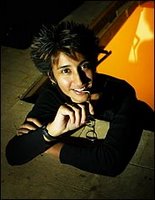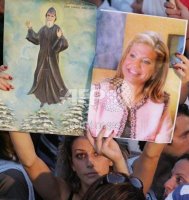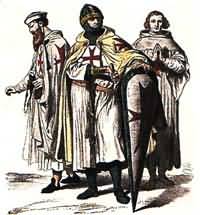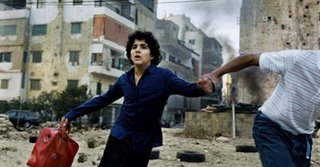
Frisse wind nodig in moslimgemeenschap
Dit opiniestuk verscheen vandaag in de GPD-bladen en is hier met toestemming van de auteur geplaatst.
Door Hikmat Mahawat Khan
Eén op de twee Nederlanders heeft een hekel aan moslims. Dit is zorgwekkend en moet gauw veranderen. Er is vast sprake van vooroordelen, maar het is te eenvoudig om te zeggen dat Nederland islamofoob is. Moslims moeten zich ook anders opstellen.
(GPD) - De helft van Nederland heeft een hekel heeft aan een miljoen landgenoten van islamitische signatuur, zo blijkt uit GPD-onderzoek. Hoe is dat zo gekomen? Simpele discriminatie is wellicht te kort door de bocht. Het Koninkrijk der Nederlanden heeft al eeuwenlang met de islam en met moslims te maken. Eerst in het voormalig Nederlands-Indië en Suriname en sinds de jaren zestig hier aan de Noordzee. Grote groepen moslims zijn hierheen getrokken en hebben in vrijheid en harmonie geleefd met de oorspronkelijke bevolking. Dit is een kip-ei-situatie. Wat was er eerst, de discriminatie van moslims of gedrag waardoor moslims nu worden gediscrimineerd?
Zonder al te veel energie te verliezen in de vraag welke rol 11 september 2001 speelde, kun je vaststellen dat de situatie de laatste jaren is verslechterd. Moslims waren een verrijking van het koninkrijk en zijn verworden tot de lastpost van het koninkrijk. Hoe is dat gekomen? Belangrijker nog: hoe kunnen wij dat terugdraaien? Hoe krijgen wij de geest van rascisme weer terug in de fles? Er zijn zoveel nota’s en studies geproduceerd, zoveel platforms opgericht en er is zoveel beleid gemaakt. Toch zijn wij in een vrije val terecht gekomen. Klaarblijkelijk was er geen regie in de samenleving, geen regie in de moslimgemeenschap en geen regie bij de beleidsmakers.
Vaak wordt de islam beoordeeld aan de hand van het gedrag van moslims. Veel moslims gedragen zich niet in overeenstemming met de leer van de islam. Zij verschuilen zich achter het geloof en besmeuren het zo. Andere moslims ontbreekt het aan lef om dit foute gedrag openlijk te bespreken. Culturele (let wel: culturele, niet: religieuze) taboes staan dat in de weg. Je mag niet het eigen nest bevuilen. De loyaliteit met de moslimbroeders is blind en benauwend, moslims moeten meer aan zelfreflectie doen. Er zijn genoeg succesvolle moslims maar die zwijgen. Zij laten het aan anderen over om voor de zwijgende meerderheid aansluiting te zoeken bij de Nederlandse samenleving. De voorhoede slaagt daar niet in omdat ze de groep die het voor iedereen verpest niet openlijk durft aan te spreken.
Schimmenspel
In Nederland moet je aantonen dat je een omvangrijke achterban hebt, voordat je serieus wordt genomen. Het is niet voldoende om te zeggen dat je de zwijgende meerderheid vertegenwoordigt. Een grote achterban is voor de voorhoede echter meteen een blok aan het been omdat ze niet wil dat heikele zaken aan de kaak worden gesteld. Veel moslim-leiders hebben jarenlang overal gesprekken gevoerd, maar durfden in eigen kring nooit harde noten te kraken. Het bleef bij pappen en nathouden terwijl de problemen zich opstapelen.
De Nederlandse overheid overlegde graag met moslimvertegenwoordigers die ze kende. Die gaven de overheid en de politiek het idee dat er een echte dialoog werd gevoerd, maar het was niet meer dan een schimmenspel. De politiek wilde zijn achterban tevreden houden en de moslimvertegenwoordigers deden hetzelfde. Welke partij wil zich impopulair maken? De politiek laat de oren teveel hangen naar de moslim-minderheid in eigen gelederen. Zo betaalt de politiek de prijs voor het achterban denken van hun moslim-leden. Zo los je de problemen niet op. De impasse kan alleen worden doorbroken als welwillende moslims het voortouw nemen. Er moet een frisse wind waaien in de moslimwereld. Er is behoefte aan nieuwe leiders die afstand nemen van de 'beroepsallochtonen' die al tientallen jaren alleen maar zeggen dat ze de gemeenschap vertegenwoordigen.
Deze nieuwe leiders hebben steun nodig, ze mogen niet bezwijken voor de druk van de 'oude' garde. Deze discussie moet buiten de partijpolitiek worden gehouden want 25 jaar slecht beleid raakt alle politieke partijen. Moslims en niet-moslims moeten weer samen gaan leven. De geest van discriminatie en racisme kan alleen terug in de fles als er wederzijds vertrouwen is en vertrouwen in wetten en regels. Discriminatie moet hard worden aangepakt, maar ook moslims moeten worden aangesproken op fout gedrag.
Hikmat Mahawat Khan is voorzitter van de Contact Groep Islam, de landelijke koepel islamitische organisaties die overleg voert met de overheid. Daarnaast vertegenwoordigt hij de landelijke koepel van de liberale stroming van de islam, de Lahore Ahmadiyya Moslims (Ulamon)









